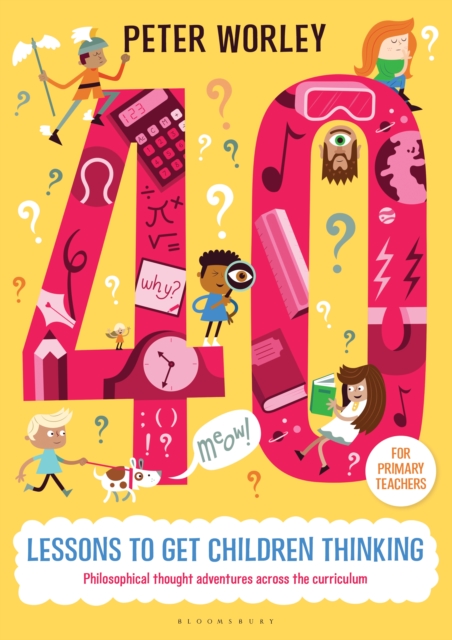
40 lessons to get children thinking: Philosophical thought adventures across the curriculum PDF
by Worley Peter Worley
Description
This is the type of book many teachers will keep on their desk and use the exercises very regularly; for me it is up there with Geoff Petty's 'Evidence-Based Teaching' and Paul Ginnis's 'The Teacher's Toolkit' as an essential resource. Worley is an excellent clear writer, who communicates very complex ideas very well. Francis Gilbert [http://www.francisgilbert.co.uk/], teacher, teacher trainer and author of ' I'm a Teacher, Get Me Out of Here'
Inspire your class to think more deeply about curriculum subjects and get them actively taking part in exciting philosophy experiments today!
This new book by bestselling author and founder of The Philosophy Foundation Peter Worley is a collection of practical lesson and activity plans to use in the primary classroom to get children thinking philosophically and creatively around different curriculum areas. The sessions - called thought adventures - use thought experiments, stories and poems to get children discussing and understanding topics more deeply.
Each session is explained step-by-step, with everything you need to 'do' and 'say' spelled out, and all the equipment you need listed with instructions on how to set up each session. You can implement the sessions in the classroom either as a complete lesson or as an activity within another lesson. All the sessions are tried and tested by Peter and his colleagues at The Philosophy Foundation who work with primary schools on a regular basis.
Information
-
Download - Immediately Available
- Format:PDF
- Pages:120 pages
- Publisher:Bloomsbury Publishing
- Publication Date:31/10/2015
- Category:
- ISBN:9781472916105
Information
-
Download - Immediately Available
- Format:PDF
- Pages:120 pages
- Publisher:Bloomsbury Publishing
- Publication Date:31/10/2015
- Category:
- ISBN:9781472916105






